Home
Dominic Cummings, the chief adviser to the Prime Minister, Boris Johnson, left Downing Street after a week in which the public learnt that Lee Cain was the director of communications at No. 10, and that he had resigned after his appointment as chief of staff was withdrawn. The imbroglio directed focus on the performance of the Prime Minister and gave an opportunity for politicians to air their grievances. Mr Johnson then went into 14 days of quarantine, having been contacted by the national Test and Trace system after breakfasting with Covid-ridden Lee Anderson, MP for Ashfield. Mr Johnson’s own Covid test proved negative. He had intended to set out his ‘personal ambition’ for the country (such as making it carbon neutral by 2050). He also had to consider a report into allegations that Priti Patel, the Home Secretary, bullied staff and to deal with the last-minute negotiations on a Brexit trade agreement.
A new vaccine against Covid-19 developed by the US company Moderna is nearly 95 per cent effective, the company’s early data showed. The UK hoped that by the spring it would have bought enough to vaccinate 2.5 million people. At the beginning of the week, Sunday 15 November, total deaths (within 28 days of testing positive for the coronavirus) had stood at 51,766 including 2,878 in the past week, compared with 2,333 the week before. This year, excess deaths above a five-year average were 70,839. Scotland imposed its harshest restrictions, Tier Four, on 2.3 million people out of a population of 5.5 million. Conservative MPs responded with alarm to a suggestion from Dr Susan Hopkins, a medical adviser to NHS Test and Trace, to tighten the less severe restriction tiers for England after 2 December. Seasonal workers from abroad were permitted to begin slaughtering turkeys straight away, instead of waiting until their two-week quarantine was up.
Eleven thousand containers of PPE were blamed for clogging the port of Felixstowe. Dentists in England provided about 19 million fewer treatments since March than last year. EasyJet posted an annual loss of £1.27 billion. Greggs, the bakery chain, was to cut 800 jobs. Caffè Nero sought a company voluntary arrangement to renegotiate terms with landlords and creditors. Peter Sutcliffe, the Yorkshire Ripper, who murdered 13 women between 1975 and 1980, died aged 74. Des O’Connor, the comedian and singer, died aged 88. Jeremy Corbyn, the former Labour leader, was reinstated as a party member, but the Leader of the Opposition, Sir Keir Starmer, said he would not restore the party whip.
Abroad
The total number in the world who had died with coronavirus reached 1,316,396 by the beginning of the week, an increase of 60,493 from the week before. In the United States more than 11 million cases had been found and deaths were running at 1,000 a day. In Belarus more than 1,000 people were arrested in the weekly Sunday demonstrations in Minsk against the rigging of presidential elections on 9 August. Peru changed president twice in a week. President Donald Trump of the United States asked advisers about options for attacking Iran’s main nuclear site. President Vladimir Putin of Russia approved an agreement with Sudan to set up a naval base on Sudan’s Red Sea coast. Greek authorities charged an asylum seeker after his six-year-old son drowned when their boat crossing from Turkey capsized. Jerry Rawlings, a former president of Ghana remembered for the execution by firing squad of eight military officers and three former heads of state, died, reportedly of Covid-19, aged 73.
Tens of thousands fled fighting between Ethiopia and its Tigray region. China extended its economic influence in the Asia-Pacific region with the signing of the Regional Comprehensive Economic Partnership by 13 Asian countries, Australia and New Zealand. In Hong Kong, 15 opposition politicians walked out of the legislative assembly after four members had been expelled at the behest of China. New Kim, a two-year-old racing pigeon, was bought by a Chinese bidder for £1.4 million.
Hungary and Poland blocked approval of the EU budget, which included a €750 billion coronavirus recovery fund, over a clause tying funding to adherence to the rule of law. ‘It is really an institutional, political enslavement, a radical limitation of sovereignty,’ said Zbigniew Ziobro, the Polish justice minister. Around 100 intact sarcophagi more than 2,500 years old were dug up near Cairo. CSH
Got something to add? Join the discussion and comment below.
Get 10 issues for just $10
Subscribe to The Spectator Australia today for the next 10 magazine issues, plus full online access, for just $10.
You might disagree with half of it, but you’ll enjoy reading all of it. Try your first month for free, then just $2 a week for the remainder of your first year.


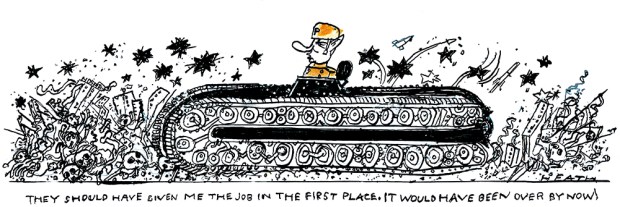
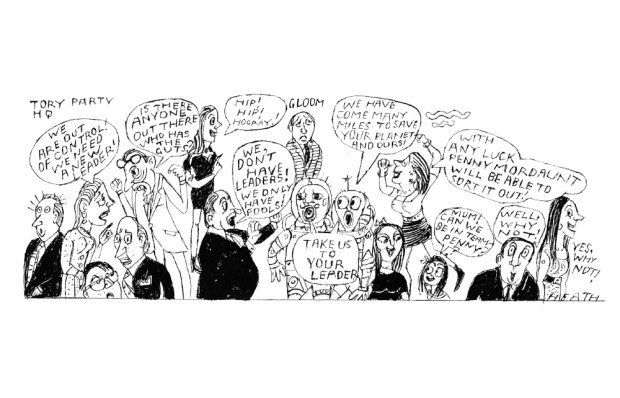

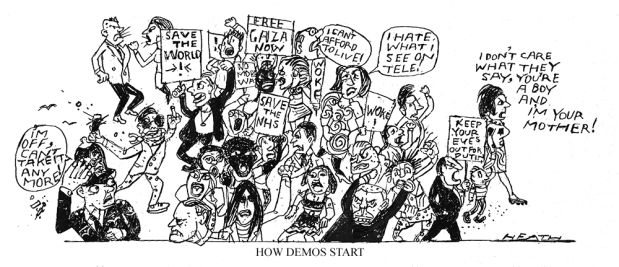
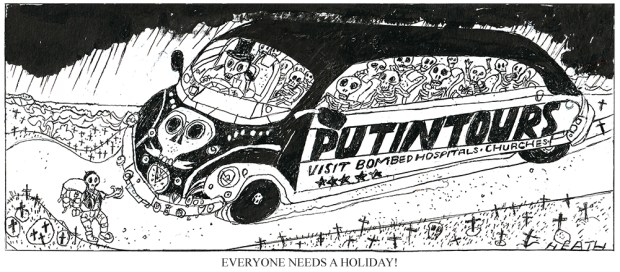
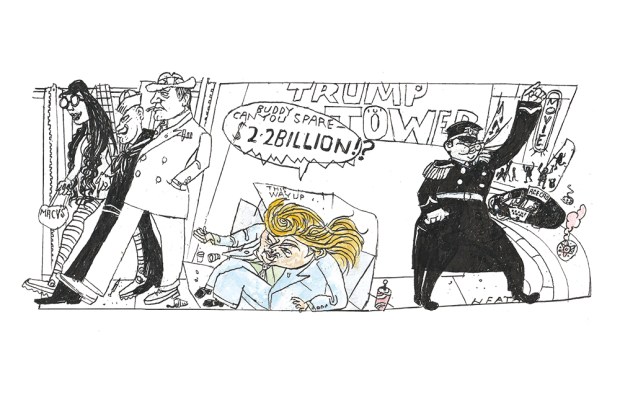






Comments
Don't miss out
Join the conversation with other Spectator Australia readers. Subscribe to leave a comment.
SUBSCRIBEAlready a subscriber? Log in